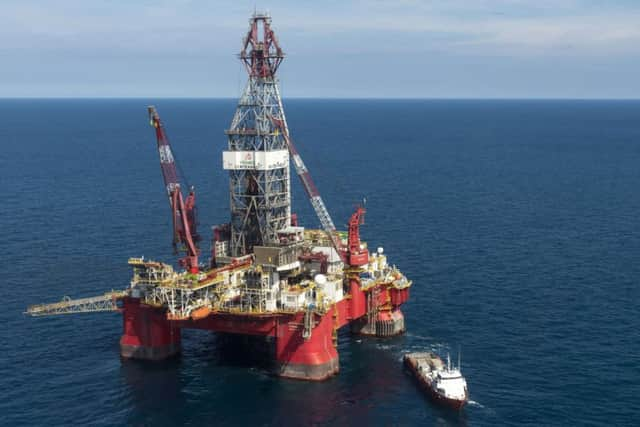Cost of living hits 12-year low, fuelled by oil


Brent crude is now below $60 a barrel for the first time since 2009, meaning the energy industry benchmark has fallen by about 50 per cent since the summer, amid concerns about weakening demand and oversupply.
The recent slump caused the consumer price index (CPI) measure of inflation to drop more steeply than expected in November, from 1.3 per cent in October, the Office for National Statistics said.
Advertisement
Hide AdAdvertisement
Hide AdIt also meant Bank of England governor Mark Carney only just avoided having to write to Chancellor George Osborne to explain why inflation is more than 1 per cent off its 2 per cent target. However, Mr Carney has already acknowledged that he is likely to have to write to Mr Osborne in the coming months.
The fall in inflation adds to hopes of a rise in real-terms wages which have lagged behind the increasing cost of living for six years.
CONNECT WITH THE SCOTSMAN
• Subscribe to our daily newsletter (requires registration) and get the latest news, sport and business headlines delivered to your inbox every morning
Most recent figures for the three months to September showed pay rising by 1 per cent year on year and regular pay excluding bonuses by 1.2 per cent. Latest data will be published tomorrow. Low inflation also gives the Bank of England leeway to leave historically low interest rates on hold at 0.5 per cent, keeping pressure off borrowers.
CPI has not been as low since September 2002 and was last lower in June 2002. It has now been at or below the 2 per cent target for 12 months in a row.
Motor fuel fell 5.9 per cent as average petrol prices dropped by 3p per litre over the month and diesel fell 2.9p, both steeper falls than the same month last year. It comes as oil prices have sunk to a five-year low.
Food and fuel prices reduced the CPI rate by 0.4 per cent and are expected to have a further negative impact after Asda joined rivals in taking its unleaded price down to 112.7p a litre – the cheapest since October 2010.
November’s figures also showed that food and non-alcoholic beverages fell by 1.7 per cent on last year, the steepest drop since June 2002.
Advertisement
Hide AdAdvertisement
Hide AdAn inflation rate below 1 per cent threatens to bring the UK uncomfortably closer to the scenario playing out in the eurozone where there are fears of a damaging deflationary spiral.
But Mr Carney said the fall in the oil price was a “net positive development” for the UK.
Presenting the Bank’s financial stability report, he said: “The 40 per cent-plus drop will flow quickly through to consumers and increase real disposable income and is a net positive for the UK economy.”
However, Mr Carney warned that the fall in the oil price also presented some risks to financial stability.
The ONS said the retail price index of inflation, which includes housing costs, fell to a five-year low of 2 per cent.
Chief Secretary to the Treasury Danny Alexander said: “I am determined that the continuing oil price falls will be passed on to consumers in full.”
The figures, released yesterday, showed air fares, second-hand cars and computer equipment dropped in price while there were no notable upward contributions.
SCOTSMAN TABLET AND IPHONE APPS